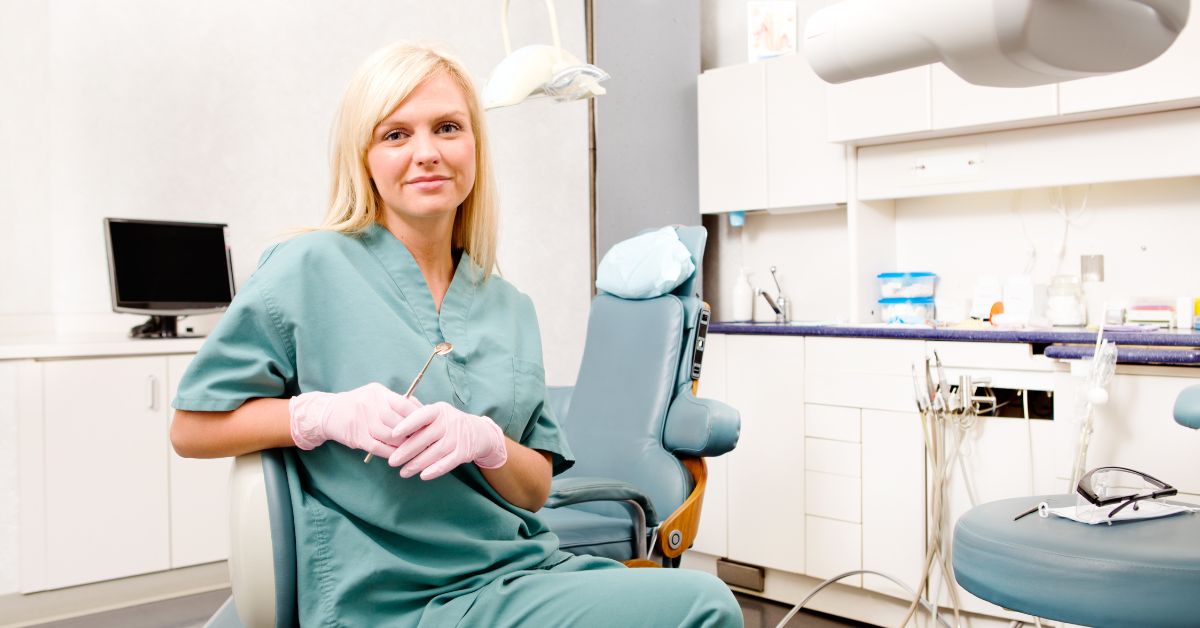Dental Hygienist Career Guide: Qualifications and Requirements
October 08, 2024BruceDayne
Brought to you by Tempfind:
Has the field of dentistry always intrigued you? Does the idea of restoring people’s smiles and confidence make you excited? If yes, then considering dental hygienist as a career choice could be your best bet. Not only considering it but becoming one, too!
As a dental hygienist, you’ll play a crucial role in promoting optimal oral health and preventing different dental diseases in your patients, all the while enjoying a job that will offer you unmatched flexibility, job availability, and growth potential.
Did you know that research shows employment of dental hygienists will grow faster than the predicted average for all other professions? It will grow from 9% from 2023 to 2033.
So, now is the perfect time to explore this profession. To make it easier for you, this guide will walk you through the qualifications and requirements needed to become a dental hygienist, ensuring you’re well-prepared to take the next step in your career. Just read ahead.
First Up, What Does a Dental Hygienist Do?
Dental hygienists are essential members of the dental team tasked with providing preventive care and educating patients about oral hygiene. As a dental hygienist, your responsibilities will typically include:
- Conducting Cleanings: Removing plaque, tartar, and stains from teeth using various tools.
- Assessing Oral Health: Examining patients for signs of gum disease and other oral health issues.
- Patient Education: Teaching patients about proper oral hygiene practices and preventive care.
- Administering Treatments: Applying fluoride treatments and sealants to protect teeth.
- Documenting Care: Keeping detailed records of patient treatments and health histories.
Per BLS reports, the yearly wage for dental hygienists, on average, was $87,530 in May 2023. This shows you the value of this profession in the healthcare sector.
Educational Pathways – What You Need to Study?
Now, let’s get to how you can become one. To become a dental hygienist, you must complete specific educational requirements such as:
1. Obtain an Associate Degree
Most dental hygiene programs require at least an associate’s degree from an accredited institution. Programs typically include coursework in biomedical sciences, dental hygiene sciences, and hands-on clinical training. Some universities also offer bachelor’s degree programs for those looking to advance further in their careers.
2. Accreditation Matters
Ensure that your program is accredited by the Commission on Dental Accreditation (CODA), as this is essential for licensure.
3. Clinical Experience
Most programs incorporate supervised clinical practice, allowing students to gain real-world experience working with patients under the guidance of licensed professionals.
Licensure Requirements – Which Licenses Do You Need?
After completing your education, you must obtain licensure to practice as a dental hygienist:
1. Pass National Board Exams
You will need to pass the National Board Dental Hygiene Examination (NBDHE), which tests your knowledge of dental hygiene principles.
2. State Licensure
Each state and country has its own licensure requirements, which may include passing a clinical examination specific to that region. It’s crucial to check your state’s or country of practice’s regulations for any additional requirements.
3. Continuing Education
To maintain licensure, dental hygienists are often required to complete continuing education courses periodically. This will ensure that you stay updated on best practices and advancements in oral health care.
Skills and Qualities Needed – What Do You Need to Master?
In addition to formal education and licensure, successful dental hygienists typically possess several key skills. Having and honing them can make you stand out:
- Communication Skills: The ability to explain procedures and educate patients effectively is vital.
- Attention to Detail: Precision is crucial when performing cleanings and assessments.
- Interpersonal Skills: Building rapport with patients can enhance their comfort and cooperation during visits.
- Dexterity: Fine motor skills are necessary for using dental instruments accurately.
For more advice and first-hand experience-related information, find a dental hygienist and get in touch with them to solidify your decision to choose this rewarding career path.
Career Advancement Opportunities – What Awaits You?
Once you are done with education and licensing, get some experience, and then you can pursue various other career paths too, like:
Specialization
Areas such as pediatric dentistry or periodontal therapy offer opportunities for further specialization.
Management Roles
Experienced hygienists can transition into practice management or supervisory roles within dental offices.
Teaching Positions
Some may choose to educate future generations of dental hygienists by teaching in accredited programs.
Final Thoughts
Becoming a dental hygienist is not just about cleaning teeth. It’s about making a significant impact on your patients’ lives through education and preventive care. With strong job prospects, competitive salaries, and opportunities for advancement, this career path is sure to give you both stability and fulfillment.
So, if you’re passionate about oral health and have a knack for helping others maintain their smiles, take the first step today, enroll in an accredited dental hygiene program, and start your journey toward becoming a vital part of the healthcare community!
DMTBeautySpot
via https://dmtbeautyspot.com
Contributor, DMT.NEWS, DMT BeautySpot,


0 comments